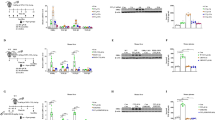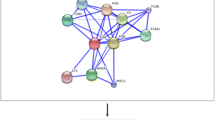Abstract
Upon liver intoxication with malnutrition or high-fat diet feeding, fibrinogen is synthesized by hepatocytes and secreted into the blood in human and mouse. Its primary function is to occlude blood vessels upon damage and thereby stop excessive bleeding. High fibrinogen levels may contribute to the development of pathological thrombosis, which is one mechanism linking fatty liver disease with cardiovascular disease. Our previous results present ERRγ as key regulator of hepatocytic fibrinogen gene expression in human. In a therapeutic approach, we now tested ERRγ inverse agonist GSK5182 as regulator of fibrinogen levels in mouse hyperfibrinogenemia caused by diet-induced obesity and in mouse hepatocytes. ACEA, a CB1R agonist, up-regulated transcription of mouse fibrinogen via induction of ERRγ, whereas knockdown of ERRγ attenuated the effect of ACEA (10 µM) on fibrinogen expression in AML12 mouse hepatocytes. Deletion analyses of the mouse fibrinogen γ (FGG) gene promoter and ChIP assays revealed binding sites for ERRγ on the mouse FGG promoter. ACEA or adenovirus ERRγ injection induced FGA, FGB and FGG mRNA and protein expression in mouse liver, while ERRγ knockdown with Ad-shERRγ attenuated ACEA-mediated induction of fibrinogen gene expression. Moreover, mice maintained on a high-fat diet (HFD) expressed higher levels of fibrinogen, whereas cannabinoid receptor type 1 (CB1R)-KO mice fed an HFD had nearly normal fibrinogen levels. Finally, GSK5182 (40 mg/kg) strongly inhibits the ACEA (10 mg/kg) or HFD-mediated induction of fibrinogen level in mice. Taken together, targeting ERRγ with its inverse agonist GSK5182 represents a promising therapeutic strategy for ameliorating hyperfibrinogenemia.






Similar content being viewed by others
References
Acevedo M, Pearce GL, Kottke-Marchant K, Sprecher DL (2002) Elevated fibrinogen and homocysteine levels enhance the risk of mortality in patients from a high-risk preventive cardiology clinic. Arterioscler Thromb Vasc Biol 22(6):1042–1045
Adams LA, Lymp JF, St Sauver J et al (2005) The natural history of nonalcoholic fatty liver disease: a population-based cohort study. Gastroenterology 129(1):113–121. https://doi.org/10.1053/j.gastro.2005.04.014
Bremner WF, Sothern RB, Kanabrocki EL et al (2000) Relation between circadian patterns in levels of circulating lipoprotein(a), fibrinogen, platelets, and related lipid variables in men. Am Heart J 139(1 Pt 1):164–173
Browning JD, Szczepaniak LS, Dobbins R et al (2004) Prevalence of hepatic steatosis in an urban population in the United States: impact of ethnicity. Hepatology 40(6):1387–1395. https://doi.org/10.1002/hep.20466
Brzozowski AM, Pike AC, Dauter Z et al (1997) Molecular basis of agonism and antagonism in the oestrogen receptor. Nature 389(6652):753–758. https://doi.org/10.1038/39645
Chanda D, Kim DK, Li T et al (2011) Cannabinoid receptor type 1 (CB1R) signaling regulates hepatic gluconeogenesis via induction of endoplasmic reticulum-bound transcription factor cAMP-responsive element-binding protein H (CREBH) in primary hepatocytes. J Biol Chem 286(32):27971–27979. https://doi.org/10.1074/jbc.M111.224352
Chanda D, Kim YH, Kim DK et al (2012) Activation of cannabinoid receptor type 1 (Cb1r) disrupts hepatic insulin receptor signaling via cyclic AMP-response element-binding protein H (Crebh)-mediated induction of Lipin1 gene. J Biol Chem 287(45):38041–38049. https://doi.org/10.1074/jbc.M112.377978
Chao EY, Collins JL, Gaillard S et al (2006) Structure-guided synthesis of tamoxifen analogs with improved selectivity for the orphan ERRgamma. Bioorg Med Chem Lett 16(4):821–824. https://doi.org/10.1016/j.bmcl.2005.11.030
Cota D, Marsicano G, Tschop M et al (2003) The endogenous cannabinoid system affects energy balance via central orexigenic drive and peripheral lipogenesis. J Clin Investig 112(3):423–431. https://doi.org/10.1172/JCI17725
Courtois G, Morgan JG, Campbell LA, Fourel G, Crabtree GR (1987) Interaction of a liver-specific nuclear factor with the fibrinogen and alpha 1-antitrypsin promoters. Science 238(4827):688–692
Enjoji M, Kohjima M, Kotoh K, Nakamuta M (2012) Metabolic disorders and steatosis in patients with chronic hepatitis C: metabolic strategies for antiviral treatments. Int J Hepatol 2012:264017. https://doi.org/10.1155/2012/264017
Feldstein AE (2010) Novel insights into the pathophysiology of nonalcoholic fatty liver disease. Semin Liver Dis 30(4):391–401. https://doi.org/10.1055/s-0030-1267539
Fibrinogen Studies C, Danesh J, Lewington S et al (2005) Plasma fibrinogen level and the risk of major cardiovascular diseases and nonvascular mortality: an individual participant meta-analysis. JAMA 294(14):1799–1809. https://doi.org/10.1001/jama.294.14.1799
Fort A, Borel C, Migliavacca E, Antonarakis SE, Fish RJ, Neerman-Arbez M (2010) Regulation of fibrinogen production by microRNAs. Blood 116(14):2608–2615. https://doi.org/10.1182/blood-2010-02-268011
Fuller GM, Otto JM, Woloski BM, McGary CT, Adams MA (1985) The effects of hepatocyte stimulating factor on fibrinogen biosynthesis in hepatocyte monolayers. J Cell Biol 101(4):1481–1486
Gabay C, Kushner I (1999) Acute-phase proteins and other systemic responses to inflammation. N Engl J Med 340(6):448–454. https://doi.org/10.1056/NEJM199902113400607
Gary-Bobo M, Elachouri G, Gallas JF et al (2007) Rimonabant reduces obesity-associated hepatic steatosis and features of metabolic syndrome in obese Zucker fa/fa rats. Hepatology 46(1):122–129. https://doi.org/10.1002/hep.21641
Harrison SA, Day CP (2007) Benefits of lifestyle modification in NAFLD. Gut 56(12):1760–1769. https://doi.org/10.1136/gut.2006.112094
Hong H, Yang L, Stallcup MR (1999) Hormone-independent transcriptional activation and coactivator binding by novel orphan nuclear receptor ERR3. J Biol Chem 274(32):22618–22626
Jeong WI, Osei-Hyiaman D, Park O et al (2008) Paracrine activation of hepatic CB1 receptors by stellate cell-derived endocannabinoids mediates alcoholic fatty liver. Cell Metab 7(3):227–235. https://doi.org/10.1016/j.cmet.2007.12.007
Kamphuisen PW, Eikenboom JC, Vos HL et al (1999) Increased levels of factor VIII and fibrinogen in patients with venous thrombosis are not caused by acute phase reactions. Thromb Haemost 81(5):680–683
Kannel WB, Wolf PA, Castelli WP, D’Agostino RB (1987) Fibrinogen and risk of cardiovascular disease. Framingham Study. JAMA 258(9):1183–1186
Kim DK, Kim JR, Koh M et al (2011) Estrogen-related receptor gamma (ERRgamma) is a novel transcriptional regulator of phosphatidic acid phosphatase, LIPIN1, and inhibits hepatic insulin signaling. J Biol Chem 286(44):38035–38042. https://doi.org/10.1074/jbc.M111.250613
Kim DK, Ryu D, Koh M et al (2012) Orphan nuclear receptor estrogen-related receptor gamma (ERRgamma) is key regulator of hepatic gluconeogenesis. J Biol Chem 287(26):21628–21639. https://doi.org/10.1074/jbc.M111.315168
Kim DK, Gang GT, Ryu D et al (2013) Inverse agonist of nuclear receptor ERRgamma mediates antidiabetic effect through inhibition of hepatic gluconeogenesis. Diabetes 62(9):3093–3102. https://doi.org/10.2337/db12-0946
Kim DK, Jeong JH, Lee JM et al (2014) Inverse agonist of estrogen-related receptor gamma controls Salmonella typhimurium infection by modulating host iron homeostasis. Nat Med 20(4):419–424. https://doi.org/10.1038/nm.3483
Kockx M, Gervois PP, Poulain P et al (1999) Fibrates suppress fibrinogen gene expression in rodents via activation of the peroxisome proliferator-activated receptor-alpha. Blood 93(9):2991–2998
Lindahl B, Toss H, Siegbahn A, Venge P, Wallentin L (2000) Markers of myocardial damage and inflammation in relation to long-term mortality in unstable coronary artery disease. FRISC study group. Fragmin during instability in coronary artery disease. N Engl J Med 343(16):1139–1147. https://doi.org/10.1056/NEJM200010193431602
Liu J, Zhou L, Xiong K et al (2012) Hepatic cannabinoid receptor-1 mediates diet-induced insulin resistance via inhibition of insulin signaling and clearance in mice. Gastroenterology 142(5):1218–1228 e1. https://doi.org/10.1053/j.gastro.2012.01.032
Lui K, Huang Y, Choi HL et al (2006) Molecular cloning and functional study of rat estrogen receptor-related receptor gamma in rat prostatic cells. Prostate 66(15):1600–1619. https://doi.org/10.1002/pros.20429
Matias I, Gonthier MP, Orlando P et al (2006) Regulation, function, and dysregulation of endocannabinoids in models of adipose and beta-pancreatic cells and in obesity and hyperglycemia. J Clin Endocrinol Metab 91(8):3171–3180. https://doi.org/10.1210/jc.2005-2679
Misra J, Kim DK, Choi HS (2017) ERRgamma: a junior orphan with a senior role in metabolism. Trends Endocrinol Metab 28(4):261–272. https://doi.org/10.1016/j.tem.2016.12.005
Okazaki M, Zhang H, Ichino K, Amamiya M, Nakayama S, Oguchi K (1994) Effects of clinofibrate on plasma fibrinogen level in high fructose diet-induced hyperlipidemic rats. In vivo 8(6):1057–1061
Osei-Hyiaman D, DePetrillo M, Pacher P et al (2005) Endocannabinoid activation at hepatic CB1 receptors stimulates fatty acid synthesis and contributes to diet-induced obesity. J Clin Investig 115(5):1298–1305. https://doi.org/10.1172/Jci200523057
Osei-Hyiaman D, Liu J, Zhou L et al (2008a) Hepatic CB1 receptor is required for development of diet-induced steatosis, dyslipidemia, and insulin and leptin resistance in mice. J Clin Investig 118(9):3160–3169. https://doi.org/10.1172/JCI34827
Osei-Hyiaman D, Liu J, Zhou L et al (2008b) Hepatic CB(1) receptor is required for development of diet-induced steatosis, dyslipidemia, and insulin and leptin resistance in mice. J Clin Investig 118(9):3160–3169. https://doi.org/10.1172/JCI34827
Otto JM, Grenett HE, Fuller GM (1987) The coordinated regulation of fibrinogen gene transcription by hepatocyte-stimulating factor and dexamethasone. J Cell Biol 105(3):1067–1072
Purohit V, Rapaka R, Shurtleff D (2010) Role of cannabinoids in the development of fatty liver (steatosis). AAPS J 12(2):233–237. https://doi.org/10.1208/s12248-010-9178-0
Ritchie DG, Fuller GM (1983) Hepatocyte-stimulating factor: a monocyte-derived acute-phase regulatory protein. Ann N Y Acad Sci 408:490–502
Sakao E, Ishihara A, Horikawa K et al (2003) Two-peaked synchronization in day/night expression rhythms of the fibrinogen gene cluster in the mouse liver. J Biol Chem 278(33):30450–30457. https://doi.org/10.1074/jbc.M304809200
Tam J, Vemuri VK, Liu J et al (2010) Peripheral CB1 cannabinoid receptor blockade improves cardiometabolic risk in mouse models of obesity (vol 120, pg 2953, 2010). J Clin Investig 120(10):3735–3735
Tam J, Cinar R, Liu J et al (2012) Peripheral Cannabinoid-1 receptor inverse agonism reduces obesity by reversing leptin resistance. Cell Metab 16(2):167–179. https://doi.org/10.1016/j.cmet.2012.07.002
Toss H, Lindahl B, Siegbahn A, Wallentin L (1997) Prognostic influence of increased fibrinogen and C-reactive protein levels in unstable coronary artery disease. FRISC study group. Fragmin during instability in coronary artery disease. Circulation 96(12):4204–4210
Toyoda M, Kitaoka A, Machida K et al (2011) Association between lipid accumulation and the cannabinoid system in Huh7 cells expressing HCV genes. Int J Mol Med 27(5):619–624. https://doi.org/10.3892/ijmm.2011.622
van Hylckama Vlieg A, Rosendaal FR (2003) High levels of fibrinogen are associated with the risk of deep venous thrombosis mainly in the elderly. J Thromb Haemost 1(12):2677–2678
Wilhelmsen L, Svardsudd K, Korsan-Bengtsen K, Larsson B, Welin L, Tibblin G (1984) Fibrinogen as a risk factor for stroke and myocardial infarction. N Engl J Med 311(8):501–505. https://doi.org/10.1056/NEJM198408233110804
Yarnell JW, Baker IA, Sweetnam PM et al (1991) Fibrinogen, viscosity, and white blood cell count are major risk factors for ischemic heart disease. The Caerphilly and Speedwell collaborative heart disease studies. Circulation 83(3):836–844
Zhang Z, Teng CT (2007) Interplay between estrogen-related receptor alpha (ERRalpha) and gamma (ERRgamma) on the regulation of ERRalpha gene expression. Mol Cell Endocrinol 264(1–2):128–141. https://doi.org/10.1016/j.mce.2006.11.002
Zhang Y, Kim DK, Lu Y et al (2017) Orphan nuclear receptor ERRgamma is a key regulator of human fibrinogen gene expression. PLoS One 12(7):e0182141. https://doi.org/10.1371/journal.pone.0182141
Zuercher WJ, Gaillard S, Orband-Miller LA et al (2005) Identification and structure-activity relationship of phenolic acyl hydrazones as selective agonists for the estrogen-related orphan nuclear receptors ERRbeta and ERRgamma. J Med Chem 48(9):3107–3109. https://doi.org/10.1021/jm050161j
Acknowledgements
This work was supported by National Creative Research Initiatives Grant (20110018305) through the National Research Foundation of Korea (NRF) funded by the Korean government (Ministry of Science and ICT) and BMBF program LiSyM (S.D., Grant PTJ-FKZ: 031L0043).
Author information
Authors and Affiliations
Corresponding author
Ethics declarations
Conflict of interest
The authors declare that they have no conflict of interest.
Ethical standards
The manuscript does not contain clinical studies or patient data.
Rights and permissions
About this article
Cite this article
Zhang, Y., Kim, DK., Jung, Y.S. et al. Inverse agonist of ERRγ reduces cannabinoid receptor type 1-mediated induction of fibrinogen synthesis in mice with a high-fat diet-intoxicated liver. Arch Toxicol 92, 2885–2896 (2018). https://doi.org/10.1007/s00204-018-2270-4
Received:
Accepted:
Published:
Issue Date:
DOI: https://doi.org/10.1007/s00204-018-2270-4




